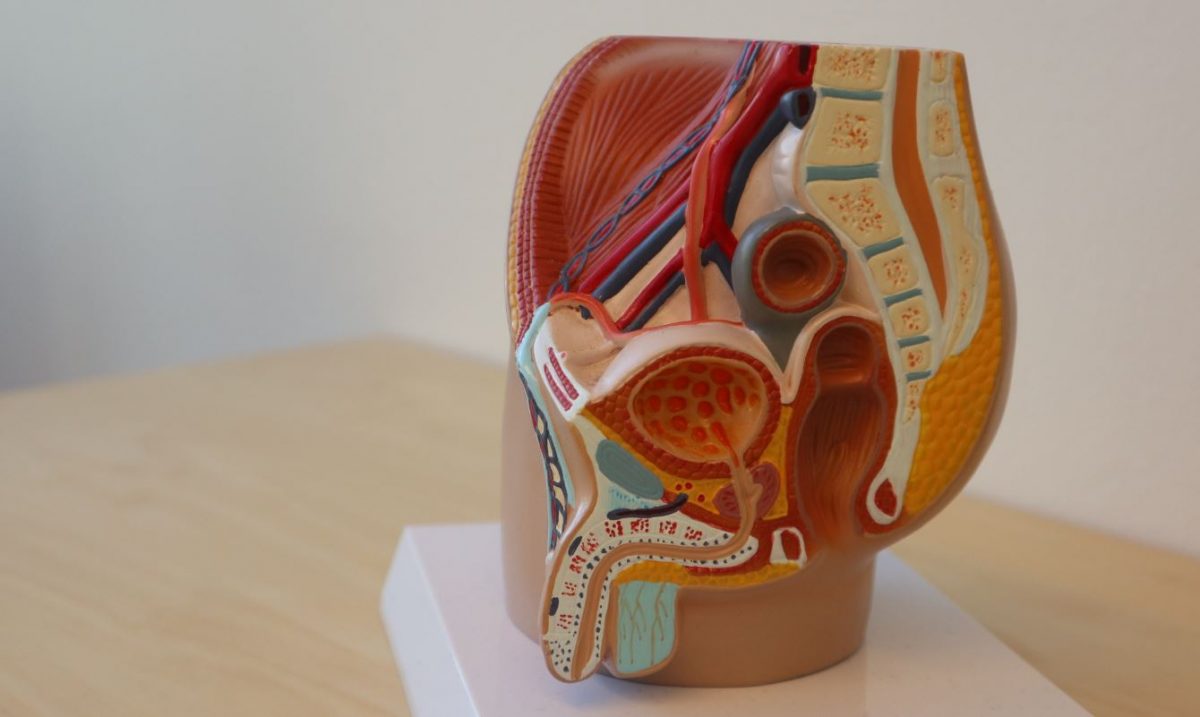
Erection problems: the vast majority can be helped
Around half of all men in their 50s have erectile problems to some degree. But despite the fact that effective help is available, many people delay seeking help. Don’t sweep the problem under the carpet, seek help, says Stefan Arver, specialist in men's medicine at Karolinska Institute.
Erectile problems are very common and something that get more so the older you are. As many as half of men in their 50s have some kind of erection problem, or the correct medical term, erectile dysfunction
Some kind of erectile dysfunction is common during your lifetime
“It’s usually said that the percentage who have some kind of problem with erections is roughly as large as the age group you belong to, says Stefan Arver, specialist in endocrinology and senior physician at Anova, the centre for andrology, sexual medicine and transmedicine at Karolinska Institute.
“So, among men in their 40s, 40 percent have some type of problem, and among 50-year-olds it’s around half, but that sets the bar quite high”, Stefan Arver continues. To qualify for this category it’s enough to sometimes have some kind of problem.
Some just get a small erection, some have difficulty maintaining one, while others don’t get an erection at all. Stefan Arver, Specialist in endocrinology and senior physician at Anova.
What is erectile dysfunction?
The definition of erectile dysfunction is the inability to get or maintain an erection sufficient for sexual intercourse. But of course, how big the problem with potency is, varies a lot from person to person. Some get just a small erection, some have difficulty maintaining one, while others don’t get an erection at all.
Erection problems often affect one’s identity and relationships
Impotence often causes suffering for both the patient and their possible partner, and erectile problems can affect large parts of people’s lives.
“The ability to get an erection often is often closely connected to identity. It is often a large part of who a person is and not infrequently it leads to worry, depression and anxiety. Many people also avoid talking to their partner and instead try to sweep the problem under the carpet, which can lead to the partner feeling unattractive and undesirable, when in fact the opposite is true,” says Stefan Arver.

Common causes of erectile dysfunction
Erection problems can be caused by a number of different things, but for the vast majority of people it is some type of issue with the blood vessels that lies behind their difficulty in getting an erection.
“It is the same kind of issue that can lead to heart problems. In order to be able to get an erection, you need to be able to increase the blood flow in the penis by between 60 and 100 times. Therefore, problems with erections are an early sign that there is some type of narrowing in the vessels, which, in the long run, can lead to cardiovascular disease,” says Stefan Arver.
Other diseases that can lead to erectile dysfunction include diabetes and depression.
“Depression and anxiety problems have a very strong negative effect on erections and people’s whole sexuality. You are 16 times more likely to have potency problems if you suffer from depression than if you don’t. If you have diabetes, the risk of having erectile problems increases by four times.
Many people also avoid talking to their partner and try to sweep the problem under the carpet, which can lead to the partner feeling unattractive and undesirable, when in fact the opposite is true Stefan Arver, Specialist in endocrinology and senior physician at Anova. Stefan Arver, Specialist i endokrinologi och överläkare vid Anova.
The vast majority can be helped
Regardless of what’s behind the erection problems, there is help available. And it’s important to know that the vast majority are helped.
“Approximately 70 percent are helped by Viagra, for example, or other erection drugs. For the rest, there are several other methods to try. So don’t avoid addressing the problem, seek help. Contact your health center, they will do an initial examination and are able to treat the vast majority of erection problems. If you need more help, they can also refer you to a urologist or specialist.”







